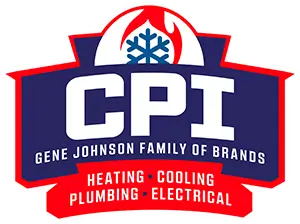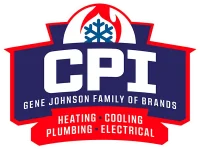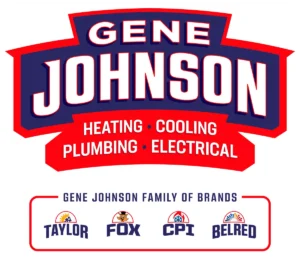Reasons why your AC won’t turn on
When the temperatures outside are soaring, all you want is to feel the cold air coming from your air conditioner. Nothing beats that kind of comfort on a hot and humid day. However, sometimes, when you least expect it, the unthinkable happens: your AC won’t turn on.
Air conditioners are essential to our comfort and indoor air quality, especially in the summer. So, it can be distressing when it malfunctions.
If you ever find yourself in a situation where your AC unit won’t turn on, don’t worry. There can be a lot of reasons ranging from easily fixable to those needing expert help.
If you know why your air conditioner is acting up, you can get closer to fixing it and cooling your home again. First, let’s find out what problems cause your air conditioner to not turn on.
Why your AC won’t turn on and how to fix the issue
If your AC suddenly doesn’t turn on, you may not even know where to start. So first, try to narrow down the possible reasons behind the issue. Here are some of the most common causes you can check for:
No power supply
One of the most common reasons your AC is not turning on is a power or electronic issue. If there are any electrical components or power supply issues, your AC will most likely not start.
It can be as simple as forgetting to plug in the unit. You can also check your AC system’s indoor and outdoor shutoff switches in case someone accidentally switched them off.
These switches are designed to cut off power coming into the AC system when it is being serviced. If the switches are turned off, your AC will not start.
Your indoor shutoff switch should be near your air handler, usually located in the attic or a utility closet. Meanwhile, the outdoor shutoff switch is just near your outside unit.
Make sure to plug your AC correctly and turn on all related switches so that power can get to your air conditioner. You can also label the shutoff switches, so no one accidentally mistakes them for a light switch.
Tripped circuit breaker
Your circuit breaker protects you and your home by automatically switching off when there’s an electrical overload.
If you have too many appliances running or your devices are inefficient and use too much power, it can trip your circuit breaker, cutting off your power source.
Check your fuse box and find your circuit breaker. If it’s turned off, switch it back on again. Be careful while doing this. If your breaker trips again, something is continuously overloading your electrical system. It’s best to call a technician when this happens.
Blown fuse
A fuse is designed to protect your AC from electrical overload. To protect your air conditioner, it blows up when there’s an overload, stopping the flow of electricity and protecting your AC.
One sign that your AC has blown a fuse is strange noises like humming or clicking coming from the AC.
Using a multimeter, you can check if your AC has blown a fuse. However, since not many households have multimeters, we suggest you leave it to the experts.
Faulty AC Capacitor
Since the AC is a large appliance that needs a lot of power, your home electrical system can’t handle the considerable amount of energy it takes to start it.
The capacitor is a small electrical device that stores electricity to give the air conditioner the jolt of energy it needs to start.
A capacitor can break due to overheating, power surges, or simple physical damage like getting hit by random debris.
If your capacitor is broken, your air conditioner can have problems with starting or sudden shutdowns. You may also notice humming or clicking sounds from the AC.
Technically, you can replace a broken capacitor by yourself, but it is not recommended. You can damage your AC if you choose the wrong voltage rating for the replacement part. Expert technicians can instead replace your capacitor for you.
Faulty wiring
You can also encounter wiring problems, especially with wires connecting your AC to your house’s electrical system (low voltage wire).
You can also face problems with the wiring that connects your outside unit to your indoor unit (high-voltage wire).
Do not do your own electrical work. If you suspect that your problem is related to wiring, call an electrician to help you out.
Thermostat malfunction
Your AC not turning on could be caused by your thermostat malfunctioning.
Check first if your thermostat is working at all. If the display is not turning on or displaying anything, your AC issue may be caused by a faulty thermostat.
If your thermostat is battery-operated, change the batteries first. If it still doesn’t work, you may need to replace your thermostat.
Low refrigerant level
Your AC may not be turning on because it has run out of refrigerant. Refrigerant or Freon runs through your air conditioning system to make cooling possible.
Refrigerant doesn’t run out naturally. However, it can run out when there is a leak in your system, which can bring about a whole set of problems other than your AC not turning on.
You may notice that your air conditioner is not cooling or ice is forming inside your AC. These signs point to a refrigerant leak that needs to be addressed immediately.
Refrigerants are dangerous to handle on your own. You also need to repair the leak before you can refill your refrigerant. If you suspect that your AC is leaking refrigerant, call an HVAC technician to have it repaired.
Dirty air filter
A dirty air filter may seem inconsequential, but if left unchecked, it can cause various issues for your AC. For example, when you run your system with a very dirty and clogged air filter, there’s a chance that the restriction in airflow causes the coils in your AC to freeze over.
If this happens, your AC might not be able to start at all. Make sure to replace your filter regularly. You can find it in your AC return ducts or a filter compartment near the air handler.
More importantly, try to avoid this situation from happening in the first place. Be diligent with your air conditioner maintenance, and you can prevent many issues and expenses in the long run.
Clogged drain line
Mold and dirt can clog your AC’s condensate drain. When this happens, the drain pan may become full, which triggers the float switch. This is the AC’s safety precaution against leakage and water damage to the unit. It cuts off power and prevents your AC from turning on until the drainage issue is resolved.
To fix this issue, thoroughly clean your AC’s drain system. Use a wet and dry vacuum to suction out the blockage, and run a drain cleaning solution through the pipes to eliminate dirt, dust, and mold.
Once you’ve cleaned all the water and dirt, the float switch can now be reset, and you should be able to turn on your AC.
Motor issues
Your air conditioner will not turn on if it has issues with its fan motor. As it is a moving part, it’s more susceptible to wear and tear, especially if not lubricated regularly.
Issues with your motor need to be checked and fixed by HVAC professionals. You may end up needing to replace it, which can be costly. Think about the age and the performance of your AC. You might save more money by just replacing the whole unit. If repairs costs are piling up to more than half the cost of a new unit, you need to consider just buying a new one.
What to do next
Once you narrow down what’s causing your AC not to turn on, you can now take the next steps to fix the issue.
If the reason is simple enough, like the circuit breaker tripping, you can do a quick fix and go about your day. However, if you’ve run into a more complicated issue, it’s best to call a local AC repair service now.
Licensed HVAC technicians can diagnose the issue correctly with their expertise and specialized tools. They can also do repairs immediately so that you can cool your home again as soon as possible.
Even if you think you can DIY some AC repairs, it’s best to leave it to the experts. Issues with the unit’s motors, capacitor, and refrigerant are difficult and dangerous to fix by yourself.
It’s also important to consider whether your AC needs repairs or replacement. Is your AC more than ten years old? Maybe it’s not turning on because it’s near the end of its life.
If you notice persistent issues like diminished cooling, even if you’ve done many repairs and maintenance over the years, it might be time to say goodbye. In that case, you need to purchase another unit and have it installed by HVAC professionals.
CPI Plumbing, Heating, and Cooling Services
Is your air conditioner not turning on? Whether you need repairs or just regular maintenance, don’t hesitate to call Skagit County’s trusted HVAC contractors.
CPI provides high-quality HVAC repairs and servicing. You can rest assured that our technicians can attend to your problems and give you valuable recommendations for your AC.
Call us now at (360) 822-9306.
Our team of experts is ready to help you. Same-day service is available for your emergency repair needs.


